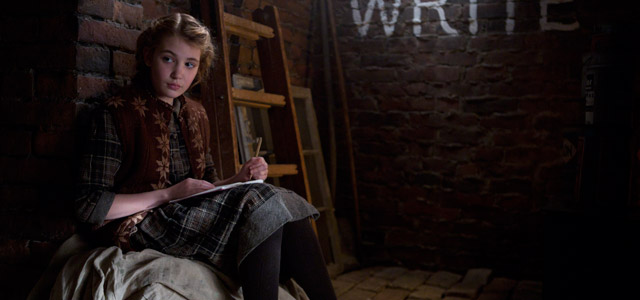
World War II drama The Book Thief is adapted from Markus Zusak's popular and acclaimed novel.
Beginning in 1939, the film tells the story of a young girl named Liesel (Sophie Nelisse) who is sent to live with her new adoptive family Hans (Geoffrey Rush) and Rosa (Emily Watson). With war imminent, Liesel not only teaches herself to read but also bonds with a Jewish boy named Max (Ben Schnetzer) whom Hans and Rosa are hiding in their basement.
Cineworld recently sat down with the film's director Brian Percival, who makes the shift from Downton Abbey to the world of feature films. He tells us about shooting in Germany, working with composer John Williams and the powerful message of the film.
Click here to order your tickets for The Book Thief.
Germany is of course a character in the film itself. Was it essential to shoot on location in Berlin and get a flavour of it?
The original plan was to make it real and use an existing town. We spent about two weeks location scouting, travelling from the south of Germany to the north looking for a town. Germany’s quite a progressive country and a lot of building work’s been done; we found towns we thought would work but so much had been changed. And also, significantly, we would have to destroy this town on-camera. It therefore became apparent that the smartest way to do it would be to build it because then we would have complete control. Because I was going to use Himmel Strasse so often, I wanted to build in specific viewpoints that allowed me to vary the shots.

How did you go about finding Liesel and is it true you ruined Sophe Nelisse’s dream of appearing in the Olympics?
Well she ruined her own dream [laughs]. It’s such a difficult role to play, and not just because of the physical nature of ageing from 10 to 16. Liesel is such a unique character with such a strength of conviction and spirit. The film lives or dies by the actress playing her, irrespective of the performers surrounding her. Liesel has a strength of spirit yet she’s also naïve – it’s quite a tall order to find somebody who can play that. Sophie was training about 35 hours a week to be in the Olympics and we only came upon her after casting directors auditioned people from all over the world. In fact, the author of the book Markus Zusak asked us if we’d seen this film called Monsieur Lazhar in which Sophie appeared.
So we took a look and there was something about her, even though she wasn’t the lead. She did a few scenes for us and there was definitely a presence about her. You know we tested kids with stage careers but I never really wanted somebody to come along and act. I wanted someone to be Liesel. We then auditioned Sophie in America and later screen-tested in Berlin, her and about four or five others and that was it. We knew that she was the one. Her approach to gymnastics training, her dedication and focus, she switched that to becoming an actress.
What was it like working with the legendary John Williams on the music?
I never expected to meet him, let alone work with him. I used to sit in the cinema in the 1970s and 1980s listening to his soundtracks for Steven Spielberg's blockbusters. So we met and I was completely in awe of the man, if a little concerned that his bag of musical tricks might swamp the film.
But as it turns out, his vision for the film was the same as mine. I don’t think he’d worked with anyone other than Spielberg for the last 8 or 9 years and there was something about this film that touched him emotionally. He wanted to compose something that was contained and beautiful and emotional and it total contrast to his big scores in which he uses lots of trumpets and percussion. So it was something that was fresh to him and he was an incredible man to work with, a wonderful, gentle, kind man, so creative and humble about what he does.
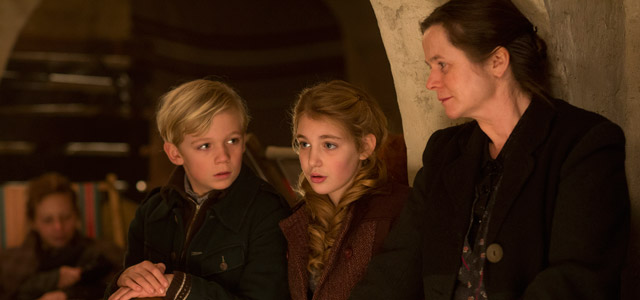
Did you ever get nervous about the reaction to the film?
Well I didn’t make it for the critical elite, I made it so that it could be seen by as many people as possible. When we were trying to find an actress who could play Liesel, I couldn’t believe how many 12 and 13 year olds knew nothing about the Holocaust. The age that we live in today, everybody has Smartphones, iPads and the like and they’ll find out for themselves what this was all about.
We showed the film to the daughter of an executive in America and at the end, she turned to her Mum, tears streaming down her face and asked: “Mummy, why was everyone so horrible to the Jewish people?” Similarly, Sophie’s friends saw the film and wanted to know what it was all about. The Book Thief is a life-affirming story about the human spirit and the power of words and as a result of that a generation are seeing something they knew nothing about. So I feel in some way that’s vindicated the choice that I made. People do genuinely seem to be moved by the film and do seem to have taken something away from it.
Do you hope that the film will inspire young audiences to pick up books?
I hope so. If it means reading a book on a Kindle or iPad then fine, it’s not as romantic as picking up a book but words are a metaphor for education. Being able to absorb the ideas and thoughts of other people, allowing people to see the world in a different way. It’s about inspiring a generation to question some of the things they learn about, inspiring them to think for themselves. It’s very much a key theme of the film.
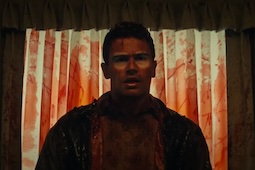
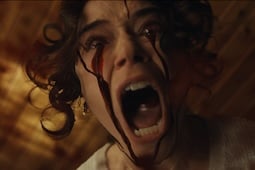
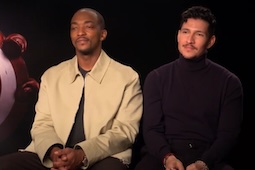
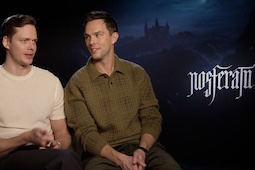
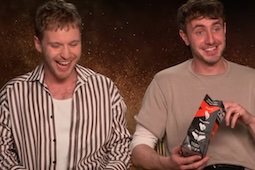
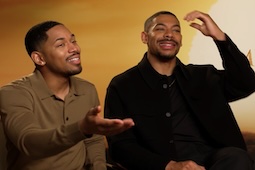
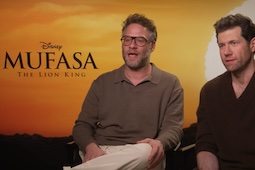
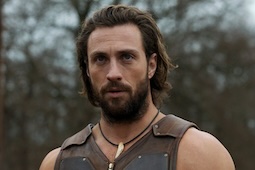
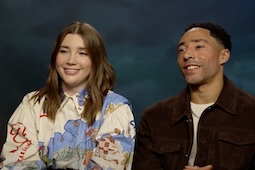

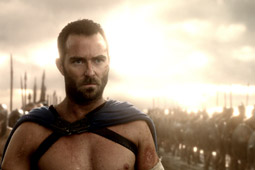

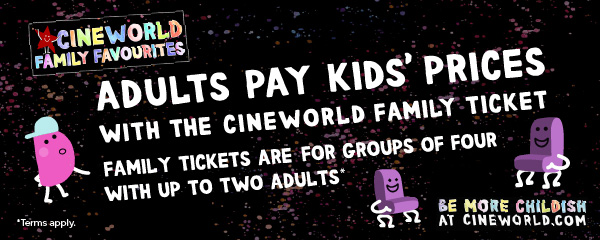

.jpg)
.png)






